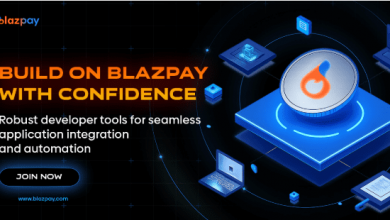The Rise of AI-Powered Content Creation in Education and EdTech

The rise of artificial intelligence in higher education has transformed the way knowledge is delivered, consumed, and co-created. In a rapidly changing EdTech landscape, higher education is being brought into a revolution powered by generative AI in education, pushing institutional, educator, and creative boundaries and ultimately changing teaching and learning. Whether you are a teacher looking for fast solutions, a student needing assistance, or an assignment helper providing support to student learners on academic tasks, AI tools are now central to the ecosystem.
For example, Locus Assignments, like others in the EdTech world, has leveraged generative AI to enhance their offerings and be able to provide more responsive, more accurate, and more personalised academic assistance. In this blog, we will explore how generative AI is contributing to the increase in educational content creators and changing the EdTech industry.
What Is Generative AI and How Does It Work in EdTech?
Generative AI represents a sophisticated machine learning model that can generate new content, text, images, videos, and even interactive modules based on many existing datasets. Whereas other forms of AI might classify/arrange/analyse data, this form of AI knows what information consists of and can design educational materials through the synthesis of information. Within EdTech, generative AI can help create lesson plans, quizzes, study guides, and other learning experiences or simulations.
These models use data points such as student scores, learning styles, constructive preferences, and Instructional objectives through an algorithm to generate individualised materials. If a student is not grasping a certain concept, generative AI can design targeted practice examples. The content production becomes automated and personalised to benefit the student. While generative AI provides time and efficiency to educators by creating content, it helps learning by creating new, seamless learning resources.
The Growth of Educational Content Creators With the Help of Generative AI.
Generative AI is changing the landscape of educational content creators – educators, curriculum authors, and even students as content creators themselves! It has always been a laborious, time-consuming, and tedious task to design high-quality, custom teaching content. With generative AI tools, the time and energy we devote to creating educational content has been dramatically decreased.
These tools help individual educators and smaller educational content creators to create various educational content like lesson plans, interactive quizzes, personalised study notes, exercises, and summaries in an incredibly efficient way. Content creation is now available to the masses, as even uneducated users can create engaging educational content at a fraction of the cost in a relatively short amount of time.
Advantages of Generative AI for EdTech Content Development
Generative AI offers several compelling advantages in the educational content space for school learning that enhance teaching and learning:
-
Personalised Learning Experiences: AI analyses learners’ pace, style, strengths, or weaknesses and generates personalised resources that are more engaging for students and address knowledge gaps.
-
Real-Time Updates and Adaptations: Content can be updated and adapted in real-time to match changing curriculum expectations or learner progress, which enhances the immediacy and relevance of resources.
-
Engagement and Outcomes: Dynamic content that can be gamified or interactive has been demonstrated for education better increase student motivation and retention over traditional printed resources.
-
Shift of Educator Focus: Educators can shift their time and focus away from content preparation to mentoring or facilitating more meaningful learning.
Use Cases and Innovations in AI-Powered Educational Content Development
Generative AI is already being used in several different creative ways:
-
Automated Lesson Planning and Course Design: AI organises syllabi, plans lessons, and sequences topics based on learner data and instructional best practices.
-
Generation of Quizzes and Simulations: AI generates various forms of practice. Think interactive problem-solving simulations and virtual labs for immersive experiential learning.
-
24/7 AI-Powered Tutoring and Feedback: AI chatbots can present immediate feedback and tutoring support anytime learning or homework is taking place outside of class.
-
Simplifying or Summarising Complex Topics: Generative AI can take complex content and transform it into short summaries. The essence of challenging topics can be presented with clarity and focus.
Challenges and Considerations
Generative AI has significant potential, but there are several different challenges to consider:
-
Ethically Using and Factually Accurate Content: Making sure the AI-generated materials are factually correct and unbiased is an important part of maintaining equity in education.
-
The Human Element: While technology can enhance and/or support human interaction, it shouldn’t replace it. Human interaction is critical for motivation, empathy, and meaningful discussions around critical thinking.
-
Development for Educators: Educators need professional development to know how to use AI tools and how to merge them with pedagogy.
-
Equitable Access: If the benefits of generative AI are not widely accessible, we could further the educational gap in access to technology.
The Future Landscape: What’s Next for Generative AI and Educational Content Creators?
As we gaze into the horizon, multiple trends will certainly shape generative AI in EdTech:
-
Deeper Re-purposed AI systems will enable even greater individual learning pathways – and dynamically adjust them in response to actual student input and affect.
-
New AI-Powered Immersive Learning Experiences: The intersection of virtual reality and augmented reality with AI could create highly engaging learning environments for experiential learning.
-
Content Creators’ Evolving Role: Educators will become more like conduits with AI in the teaching and learning process, rather than simply producers of content, allowing them to focus on creativity, critical thinking, and supporting students, while not only producing content.
-
Changes to Education Systems: The extensibility, access, and adaptability of AI-enhanced education could change the paradigm of lifelong learning, providing continuous skill synthesis beyond traditional institutions.
Conclusion
Generative AI is changing the nature of EdTech by automating and personalising education-generating content, which is creating a new place for educational content creators. Platforms like Locus Assignment highlight how learners can gain real-world academic support through technology. With assignment help, students experience more tailored and efficient learning processes.. Artificial intelligence will only continue to converge upon higher ed, so it will subsequently be important for its users to embrace these tools. The future is clear; it will be more personalised, dynamic, and accessible, and AI will continue to enhance human potential and not replace it.

Source: The Rise of AI-Powered Content Creation in Education and EdTech




